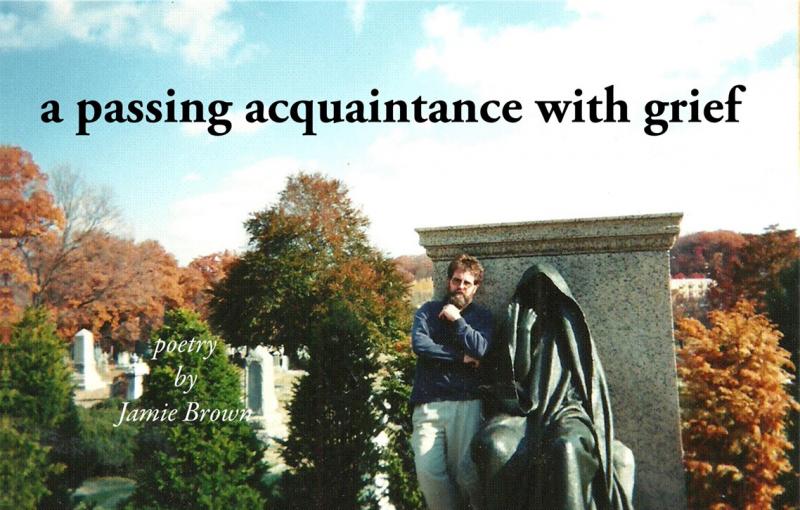It might be reasonable to assume that the collection of poems by Jamie Brown in “A Passing Acquaintance with Grief,” are the result of being quarantined during the COVID pandemic.
While this is not the case, many of Brown’s poems speak to the painful realities of COVID as it continues to impose on peoples’ lives.
Delaware has more than a passing acquaintance with Jamie Brown, who has lived in Milton for 20 years. He has mentored many of Delaware’s poets, and many remember his bookstore John Milton and Company, next to the still-missed Federal Street Café. His bookstore was not only named for Milton, the poet-philosopher, but was also a nod to the Paris bookstore Shakespeare and Company.
Soon after opening his bookstore, Brown launched the Broadkill Review, which he produced bimonthly for a decade as a venue for poets and writers, and which continues online under the leadership of Scott Whittaker. Brown’s Annual John Milton Memorial Celebration of Poets and Poetry, held each December in the Milton Theatre for more than 10 years, was another important venue for poets, not only in Delaware, but also from as far north as Boston and as far south as North Carolina.
In 2007, the Delaware Press Association honored Brown’s work “Sakura: A Cycle of Haiku,” with the Best Book of Verse prize, and in 2018, his “The Delaware Bay: Poems” won in the Best Chapbook of Verse category. His play, “Death Comes Twice,” swept the top four prizes in the Milton Theatre’s One Act Play competition in 2007.
To date, 19 winners from six states have earned the annual Dogfish Head Poetry Prize, which Brown launched with Sam Calagione of Dogfish Head Brewery. In 2023, the contest will celebrate its 20th year.
In his newly released collection, “A Passing Acquaintance with Grief,” Brown amplifies Robert Frost’s confession, “I have been one acquainted with the night.”
Brown’s poem, “On Contemplating the Impending Death of the Family Patriarch,” written decades ago, is as painfully relevant today as when he wrote it.
In his poem, “Found,” he writes “It is the long, slow unwrapping of the last great package, the unraveling, the uncovering, the understanding that the package is us, all of the artifice, all of the conceit, all of the painstaking built-up resistance to the world undone.”
Another of his poems, “To an Aging Friend,” is about love lost in another time and place; it ends with “I cannot hope to love again.”
Yet there are poems in this collection which touch on ancient history, as in “Last of the Horde,” which acknowledges the demise of Brown’s Hungarian ancestors. The facts in his poem, “Attila Lysergent,” are based on his 2,000-page historic novel-in-progress about the fall of Rome from the Barbarian perspective, which continues to occupy much of his time.
Merrill Leffler, well-known poet and editor, said, “The haunting lyricism of Jamie Brown’s poetry does not turn away from the daily vicissitudes of life and all its wounds and diminishments, but these poems are complemented by a series of trope-rich meditations.”
When asked about the title, and the cover photo that features the statue “Grief”’ by Augustus Saint-Gaudens, 1891, Brown confesses, “It’s my attempt to address the realities and the ironies of life. In fact, I was finalizing a number of poems in this publication when my aorta split open and I had a 6 percent chance of surviving. Having done so, this unexpected event has since influenced my outlook on life and thus my poetry.”
For more information about Jamie Brown’s work, email the_broadkill_press@earthlink.net.


















































